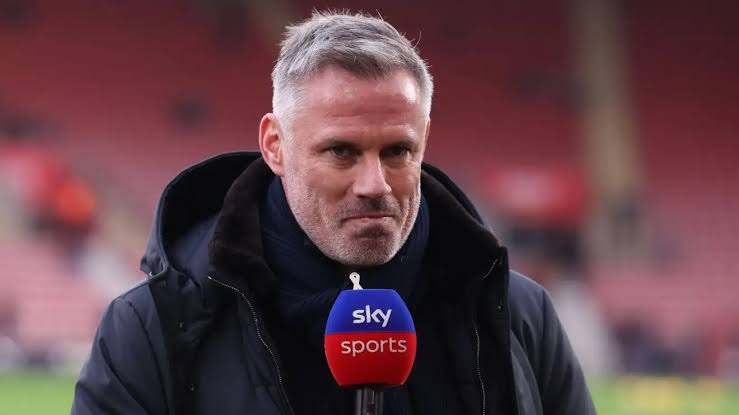The debate over the significance of the Africa Cup of Nations (AFCON) reignited after former Liverpool defender Jamie Carragher controversially downplayed the tournament’s importance during a discussion about Mohamed Salah’s Ballon d’Or prospects. Carragher, speaking on Sky Sports following Liverpool’s victory over Manchester City, argued that Salah’s participation in AFCON, which he did not consider a “major tournament,” might hinder the Egyptian’s chances of winning the prestigious individual award. He suggested that success in the UEFA Champions League or a “major tournament” like the World Cup typically propelled players towards Ballon d’Or recognition, citing Vinicius Junior and Kylian Mbappe as examples of players benefiting from strong Champions League performances. This seemingly dismissive stance towards AFCON ignited a heated exchange on the program and sparked broader conversations about the perceived hierarchy of international football tournaments.
Carragher’s remarks immediately drew strong criticism from fellow pundit and former Manchester City defender Micah Richards. Richards challenged Carragher’s assertion, emphasizing that AFCON is indeed a major tournament and highlighting the error in dismissing it as less important than European or South American counterparts. He pointed out that many viewers might be wrongly influenced by such dismissive remarks, reinforcing a harmful narrative that undermines the significance of African football. The exchange underscored a common sentiment among African football fans and players: that European pundits and media often undervalue their continental competition, despite its rich history and passionate following.
Carragher’s attempt to defend his position by questioning Egypt’s World Cup prospects further fueled the controversy. His argument implied that Ballon d’Or voters primarily valued success in globally recognized tournaments, seemingly relegating AFCON to a secondary status. Former Liverpool and England striker Daniel Sturridge also entered the fray, firmly supporting Richards’ stance and emphasizing that AFCON deserved recognition on par with the European Championship and Copa America. He reiterated that winning any continental championship is a significant achievement and should be considered a major factor in Ballon d’Or deliberations, implying that Carragher’s perspective perpetuated a bias against African football.
The discussion became increasingly tense as Richards pressed Carragher, reminding him of the intense rivalry between Salah and Sadio Mané during previous AFCON tournaments. Carragher’s dismissive response, an exasperated “Oh God,” only served to underscore the growing frustration with his seemingly dismissive attitude. Richards’ persistence highlighted the importance of acknowledging the passionate competition within AFCON and the significant individual and national pride associated with the tournament. The exchange on Sky Sports mirrored a wider debate within football about the Eurocentric view that often marginalizes achievements in African football.
This incident reignited long-standing criticisms regarding the perceived hierarchical view of international football competitions. Critics argue that European football often overlooks or downplays the significance of tournaments like AFCON, despite its status as the premier football competition in Africa. The debate highlights a broader issue of representation and recognition within the global football landscape. The underlying concern revolves around the perceived double standard where success in European competitions is seen as more valuable than comparable achievements in African or other continental tournaments. This perceived bias feeds into a narrative that devalues the accomplishments of African players and teams, potentially impacting their recognition on the global stage.
The timing of this controversy, with Salah performing at a high level for Liverpool and AFCON approaching, further amplifies the discussion. Salah’s contributions to his club, including a goal and an assist in the victory against Manchester City, have placed him firmly in the conversation for individual awards like the Ballon d’Or. As he climbs Liverpool’s all-time scoring charts, the debate around the relative importance of his club and international performances becomes even more pertinent. The conflicting perspectives highlight the broader challenge of recognizing and valuing achievements across different footballing contexts, particularly when those contexts fall outside the traditional European power centers. The discussion about AFCON’s significance will likely resurface as the tournament approaches, further highlighting the need for greater respect and acknowledgment of African football within the global football community.


